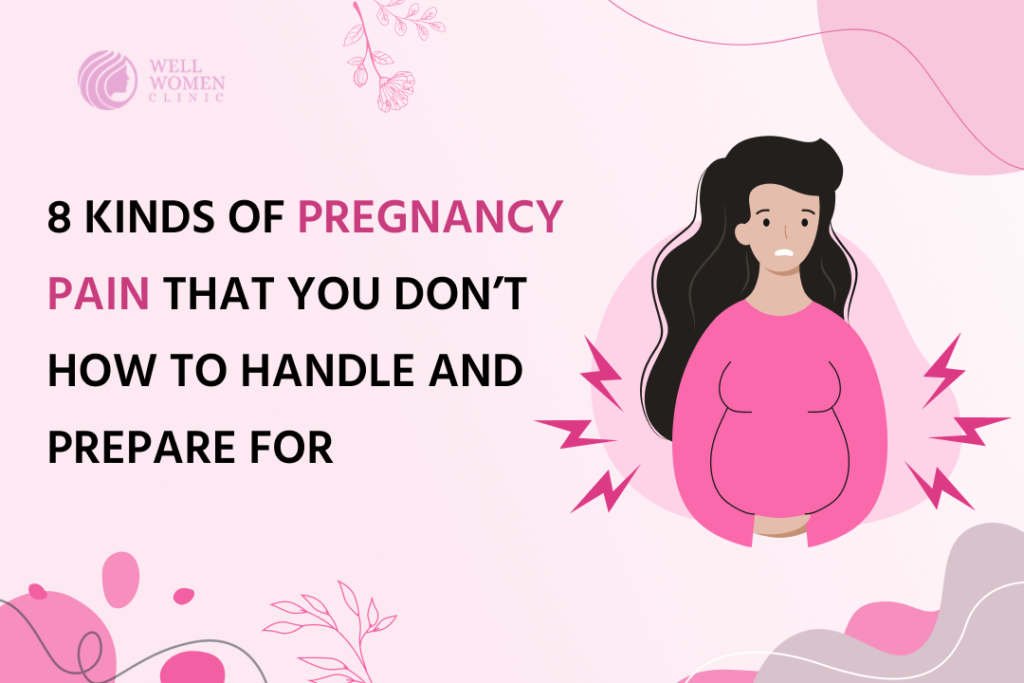If you’re a first-time mother, you’re probably dealing with morning sickness, excitement and curiosity at the same time. Even when you’re having a second baby, you’re handling the same emotions all over again. Pregnancy is a life-changing, beautiful learning experience. You’re suddenly dealing with all kinds of body pain, which wasn’t always the case with your menstrual cycle. Though your body is used to the cramping and bleeding once a month along with the hormonal changes that it brings, pregnancy causes progesterone and oestrogen to flood throughout the body.
Physical changes, mood swings and weight gain are only some of the changes pregnant women face. In these cases, they are often confused and frightened about these changes. The pain associated is another source of alarm, which is why they must talk to a London gynaecology clinic. Once you visit a gynaecologist in London, you’ll be diagnosed and treated for the condition.
Types Of Pregnancy Pain That You Don’t How To Handle:
-
-
Neck And Shoulder Pain:
Due to progesterone, ligaments in the neck and shoulders loosen up during pregnancy. Moreover, the abdominal muscles also lose their tautness and affect your posture as well. Maintain a healthy posture, and this relieves neck and shoulder pains during pregnancy.
-
Sciatic Pain:
The sciatic nerve is the longest nerve in the human body, which runs down from the neck, midsection and leg. This is due to the increased pressure on the nerve situated in the buttocks, and sitting for long periods increases the chances of sciatic pain during pregnancy.
-
Abdominal Pain:
As the foetus grows inside the uterus, it stretches out your abdominal skin and muscles. Due to the thickening, lengthening and stretching of the skin, ligaments cause pain when you’re pregnant. For relieving cramps and sharp pains from the stretched abdominal ligaments and muscles, you must take warm showers and exercise regularly.
-
Pelvic And Hip Pain:
Due to the high progesterone levels, the ligament loosening process enables the baby to pass through the birth canal. In the same manner, this loosens up the connective tissues in your hip and pelvic area and cause pain in pregnancy.
-
Lower Back Pain:
As the abdomen grows out to accommodate the foetus, the back muscles are carrying the extra weight. Due to this reason, the additional pressure causes pregnancy pains and backaches. Due to the increasing progesterone levels, it loosens the pelvic ligaments and muscles for birth. Due to the loosening back ligaments, they cause backaches and back hyperextension during pregnancy. Your gynaecologist in London would ask you to control the weight gain with exercise and a balanced diet and replace medication with a heating pad on the back. The private gynaecologist in London would also recommend exercise to strengthen the abdominal muscles, use an elastic sling or pregnancy girdle or wear shoe inserts. Avoid high heels, standing for long periods and lifting loads as far as possible. You must also sit straight, sleep on a firm mattress and use a pillow between the legs.
-
Migraines:
Due to the constant hormonal changes, women suffer from migraines and headaches. Women who have always suffered from migraines experience worse symptoms, while others report relief.
-
Arm And Wrist Pain:
Also called carpal tunnel syndrome, this causes swelling and pain of the wrists and hands during pregnancy. The carpal tunnel refers to a small hole in your wrist through which the nerves pass, and they are pinched due to the swelling in pregnancy. You can use wrist braces to prevent swelling of your arms and wrist, which also hurt, go numb or tingle.
-
Pubic Pain :
If you’re experiencing pelvic or vaginal pressure, pain or cramping, it’s due to an expanding uterus. You’ll experience pain in the pelvis, thighs and lower back – especially at night time. This happens as the space between the pelvic bones double in width during pregnancy. The increase in the relaxing hormone causes your pelvic ring and pelvis to become hypermobile, as this helps the baby to easily move through the birth canal.
-
If you have symphysis pubis dysfunction, you experience pain and your pelvis could get misaligned. The pelvic floor fails to support the organs and pelvic parts, and it commonly occurs towards the end. Once you give birth, the pelvic floor slowly returns into shape. If the pregnancy pain is due to medical reasons, consider a private abortion in London.
For further diagnosis and treatment, you can visit an abortion clinic in London. If you’re looking for a private gynaecology clinic in London, please contact us at Well Women Clinic.





